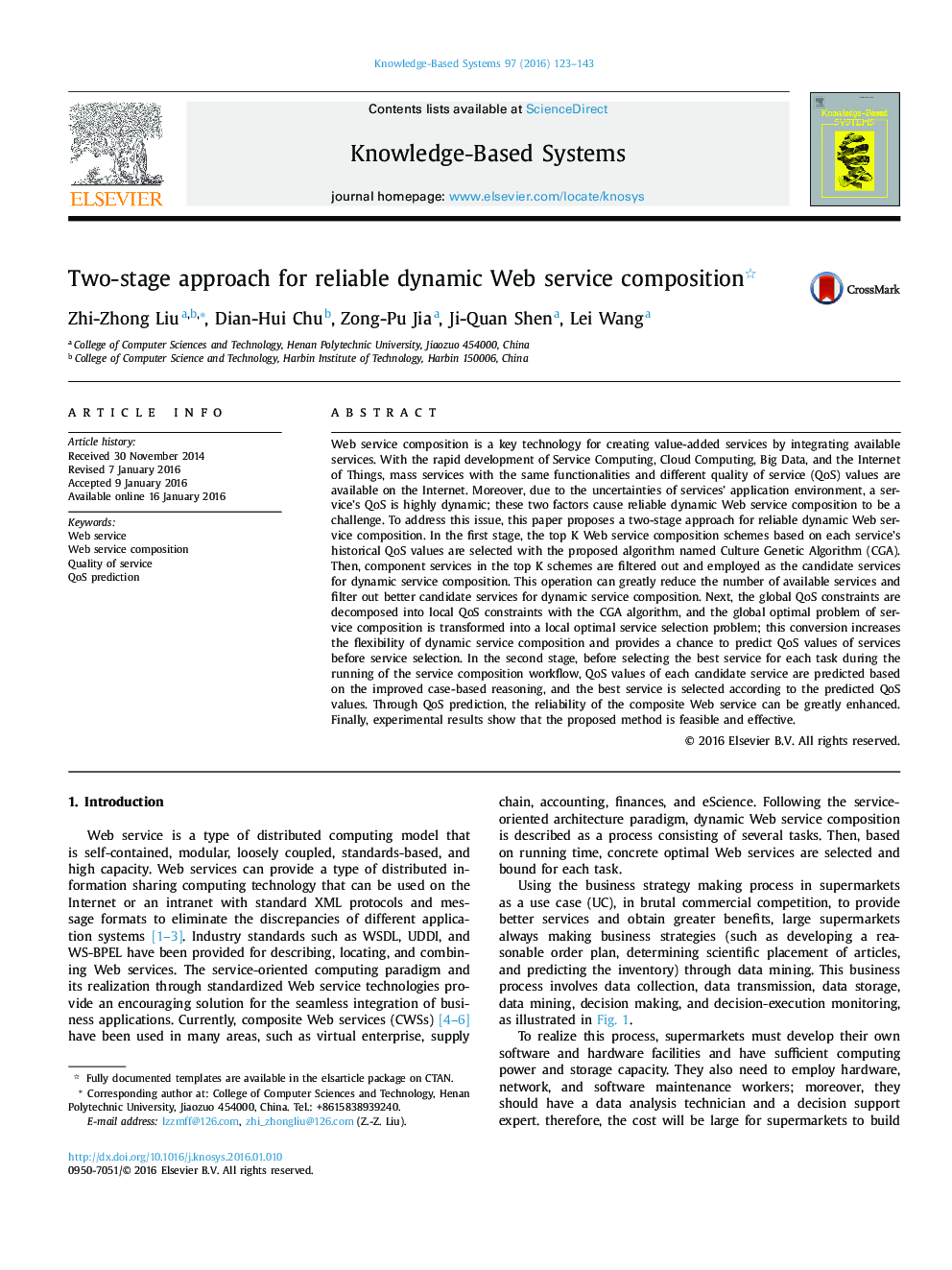| کد مقاله | کد نشریه | سال انتشار | مقاله انگلیسی | نسخه تمام متن |
|---|---|---|---|---|
| 402139 | 676862 | 2016 | 21 صفحه PDF | دانلود رایگان |
• This paper proposes a two-stage method for reliable dynamic Web service composition and improves the reliability of dynamic Web service composition.
• In the first stage, the scale of candidate services is reduced and the service composition problem is transformed to local service selection problem.
• In the second stage, QoS of candidate services are predicted and used to select the optimal services for tasks in the service composition workflow.
• Culture Genetic Algorithm (CGA) is proposed to reduce candidate services and decompose the global QoS constraints into local QoS constraints.
• It proposes a Web service QoS dynamic prediction method based on improved case-based reasoning (CBR).
Web service composition is a key technology for creating value-added services by integrating available services. With the rapid development of Service Computing, Cloud Computing, Big Data, and the Internet of Things, mass services with the same functionalities and different quality of service (QoS) values are available on the Internet. Moreover, due to the uncertainties of services’ application environment, a service’s QoS is highly dynamic; these two factors cause reliable dynamic Web service composition to be a challenge. To address this issue, this paper proposes a two-stage approach for reliable dynamic Web service composition. In the first stage, the top K Web service composition schemes based on each service’s historical QoS values are selected with the proposed algorithm named Culture Genetic Algorithm (CGA). Then, component services in the top K schemes are filtered out and employed as the candidate services for dynamic service composition. This operation can greatly reduce the number of available services and filter out better candidate services for dynamic service composition. Next, the global QoS constraints are decomposed into local QoS constraints with the CGA algorithm, and the global optimal problem of service composition is transformed into a local optimal service selection problem; this conversion increases the flexibility of dynamic service composition and provides a chance to predict QoS values of services before service selection. In the second stage, before selecting the best service for each task during the running of the service composition workflow, QoS values of each candidate service are predicted based on the improved case-based reasoning, and the best service is selected according to the predicted QoS values. Through QoS prediction, the reliability of the composite Web service can be greatly enhanced. Finally, experimental results show that the proposed method is feasible and effective.
Journal: Knowledge-Based Systems - Volume 97, 1 April 2016, Pages 123–143
